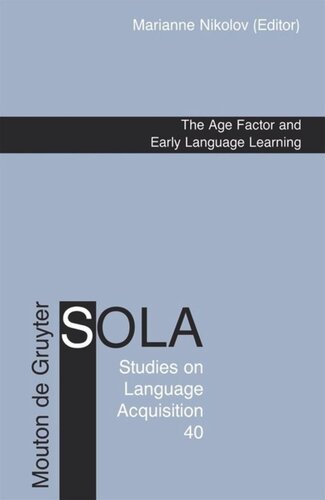

Most ebook files are in PDF format, so you can easily read them using various software such as Foxit Reader or directly on the Google Chrome browser.
Some ebook files are released by publishers in other formats such as .awz, .mobi, .epub, .fb2, etc. You may need to install specific software to read these formats on mobile/PC, such as Calibre.
Please read the tutorial at this link: https://ebookbell.com/faq
We offer FREE conversion to the popular formats you request; however, this may take some time. Therefore, right after payment, please email us, and we will try to provide the service as quickly as possible.
For some exceptional file formats or broken links (if any), please refrain from opening any disputes. Instead, email us first, and we will try to assist within a maximum of 6 hours.
EbookBell Team

4.3
78 reviewsThis edited volume documents the state of the art in research into how the age factor interacts with other factors in a variety of educational contexts. The book comprises 17 chapters examining early language learning and teaching in a range of countries in Europe, Asia and North America. Authors discuss main themes in research methodology, curricular and assessment issues, short- and long-term outcomes, the role of individual differences, innovation in teacher education, classroom processes, as well as the impact of the target language.
The first two chapters (Nikolov; Edelenbos and Kubanek) overview the main trends in research. Four papers (Curtain;Ofra Inbar-Lourie and Elana Shohamy; Jalkannen; Haenni Hoti, Heinzmann, and Müller) focus on the assessment of young learners; two authors examine how age impacts on language learning over time (Muñoz; Kasai). Individual differences (motivation, anxiety, aptitude, and socio-economic status) are explored byMihaljevi? Djigunovi?, Mattheoudakis and Alexiou, and Kiss. Innovation is the common theme in chapters written by Wang, Moon, and Peng and Zhang. The last three papers analyze the status of languages (Harris, Enever, Carmel).
The book is a must have for teacher educators of pre- and in-service teachers of modern languages to young learners, MA and PhD students in TEFL/TESOL and other languages, researchers and policy makers.